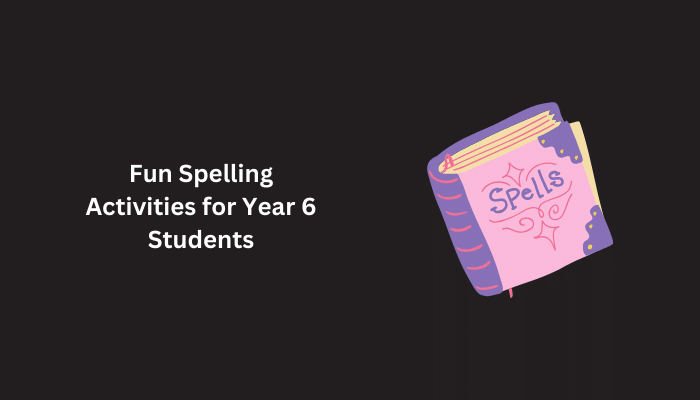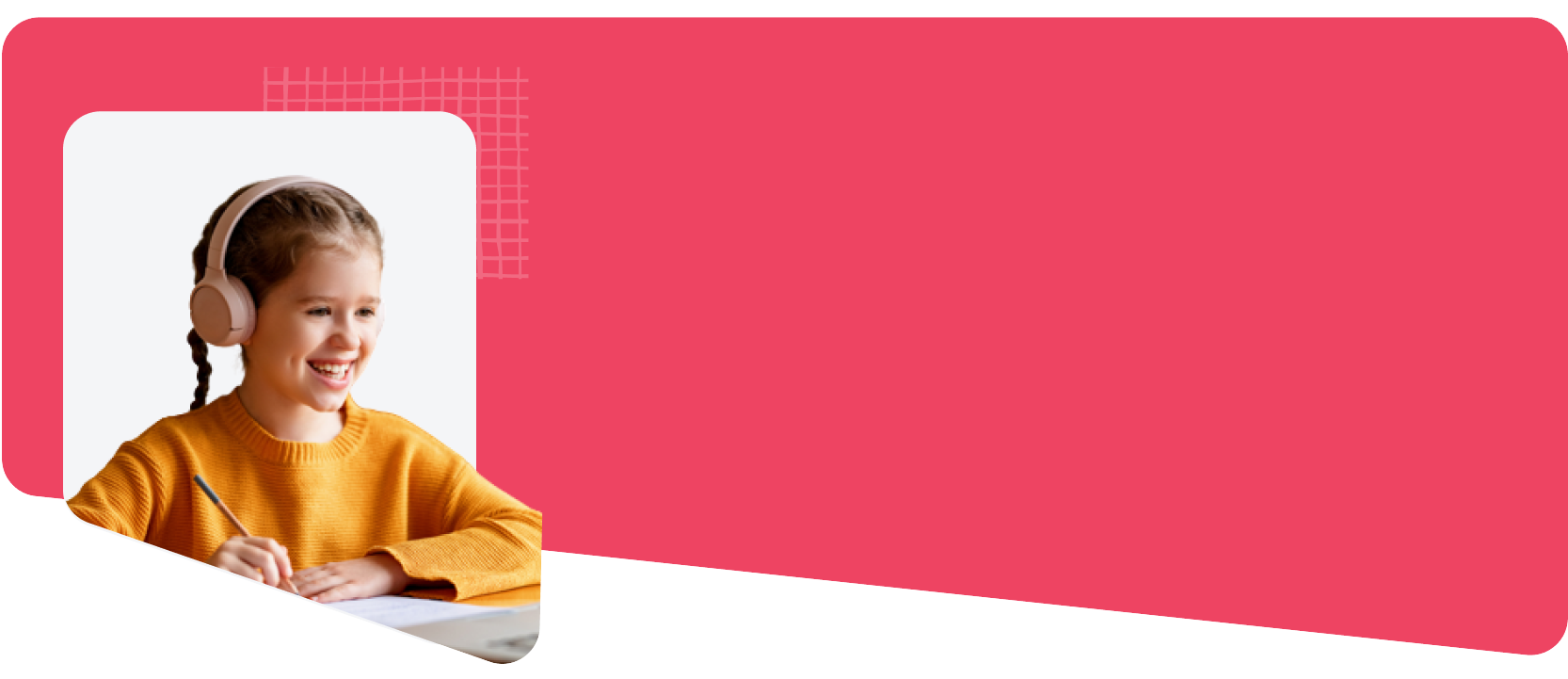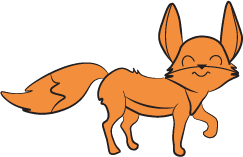Spelling is an important subject for Year 6 students, as mastering correct spelling will help them communicate effectively in their writing.
Spelling activities specifically tailored for year 6 students can make practicing spelling more engaging and fun for students of this age group.
This article provides a variety of activity ideas and worksheets to help Year 6 students enjoyably improve their spelling abilities. The different activity types cater to varied learning styles, from crosswords and puzzles to games and creative writing prompts.
Students will be motivated to participate more actively When they see how much they can learn while having fun. Regular practice through these activities will boost their confidence in spelling and reduce anxiety around tests or assignments. As spelling strengthens, it will positively impact their writing quality, too.
Teachers can select activities appropriate for their students and incorporate them into weekly lesson plans. Students should be encouraged to try different activities to determine what works best for their learning.
Regular feedback will keep them engaged and encourage them to continue practicing spelling through these interactive games.
Importance of teaching spelling despite the complexities of the English language and the availability of spell-check tools
English spelling rules are indeed complex, with many irregularities and exceptions. However, mastering spelling is still important as it improves reading and writing skills.
While spell-check tools help, they must build long-term memory of correct spellings. Relying too much on technology hinders learning.
Moreover, spelling abilities reflect overall proficiency with the language. Spellers may need help to express themselves effectively. Teaching spelling cultivates attention to detail and self-editing skills vital for academic and professional success.
Engaging activities and structured worksheets can enhance the spelling activities for year 6
By Year 6, students require varied practice to retain spellings. Worksheets provide structured yet interactive exercises that appeal to different learning styles.
Games, puzzles, and creative writing infuse fun while reinforcing rules. For example, crosswords within a spelling context require applying knowledge for clues. Matched pair activities test visual memory of words.
Scavenger hunts make practice an engaging challenge. The activities can incorporate room for noting down tricks to remember difficult words.
Teachers can provide feedback to clarify misconceptions. When spelling practice is enjoyable, students are inclined to dedicate more time, leading to better understanding and application of rules.
Fun Spelling Activities for Year 6 Students

These engaging activities make spelling practice enjoyable for Year 6 students. Varied activity types cater to different learning styles.
Play Wordketball: A team-based game where students spell words and score by shooting baskets.
Students are divided into teams. The teacher calls out a word, and students huddle to discuss the spelling. When team members say the word correctly, they shoot the ball into the hoop and score points. This competitive yet cooperative activity promotes recall and teamwork.
Go ‘Around the World’: Students spell words to move around the classroom.
The teacher calls out a word for the first student to spell. If correct, they move to tag the next person, and the process continues. Incorrect spellers stay in place as others race around. This fast-paced activity tests memorization under time pressure.
Create Spelling Word Shapes: Hands-on activity where students write spelling words along the lines of a shape.
Students are given shapes and write spelling words by following the lines. This engages their visual and tactile senses. Shapes can also depict the word’s meaning. The activity builds an association between words and their structure.
Play Sight Word Bingo: Reinforces word recognition and spelling through matching activities.
Students are given bingo cards, and the teacher calls out sight words. If spelled correctly, they mark the word on their card. This tests visual memory and familiarity with common words.
Play Celebrity Heads with Words: A guessing game where students spell the word correctly after guessing.
A student thinks of a word and writes it on their forehead without seeing it. Peers ask questions to figure it out, and the student provides clues without saying the word. If the student guesses correctly, the next student gets the turn. This challenges logic and encourages teamwork.
Make Spelling Words Sparkle: This is a participatory spelling game in which students spell out words letter by letter, adding ‘Sparkle’ after completion.
One student spells a word by saying each letter. Peers respond with the letter if correct or ‘Sparkle’ if wrong. The student continues till the end, earning a point for every accurate response. This keeps all students involved throughout.
Spelling activities for year 6
Regular practice is essential for students to retain spelling. Here are some practical options for Year 6:
Year 6 Spelling Test: An online test to check spelling level
This free online test assesses the spelling skills of a Year 6 student. It includes 40 words based on the UK curriculum and tests within 5 minutes. Immediate feedback is provided. Teachers can assign it weekly to track progress. Students can take it independently to identify areas of improvement.
Spelling activities for year 6
Spelling correctly is an important part of learning in Year 6. As students age, the words they are expected to spell become more complex. Here are some tips for Year 6 students to help them master spelling.
Recommended method: Look, Say, Cover, Write, Check
A very effective technique for learning spellings is to use the “Look, Say, Cover, Write, Check” method. With this method, students first look carefully at the word and say it aloud slowly.
They break the word into syllables or individual sounds. Then, they cover the word so they cannot see it. Next, they write the word from memory on a piece of paper. Finally, they check their spelling against the original word to see if they got it right.
If a word is misspelled, students should repeat the process until they have mastered it. They can keep practicing words they repeatedly get wrong.
This method works well because it engages visual and verbal memory to help imprint the spelling onto long-term memory through repetition. Students should practice 10-15 spellings per night following this method.
Suggestion to practice spellings for four days and test on the fifth day
In addition to using the “Look, Say, Cover, Write, Check” method each time they practice, students can follow a four-day practice schedule. On the first day, they should review the entire week’s spelling list and practice writing each word at least twice. On the second and third days, they can focus on words they struggled with and write them multiple times.
Students can use spellings differently on the fourth day by writing them in sentences, making word webs or diagrams, or sorting words into categories. Finally, on the fifth day, they should be given a quiz or test on all the words. Practicing over four days, rather than trying to cram all the words in one night, gives the brain more time to consolidate the new information into long-term memory through spaced repetition.
Students should ask their teacher for feedback on any words they struggle with after the test. Repetition is key to learning spellings so that they may need extra practice on difficult words.
Following this four-day schedule can help turn spelling from a chore into a more manageable process. With regular practice, Year 6 students will become confident spellers who can apply their skills across all subjects.
Introduction to the 360 words selected for Year 6
In Year 6, students are introduced to 360 words they need to learn and understand. These words have been carefully selected to enhance their vocabulary and language skills. The words cover many topics and include standard and more advanced words. Learning these words improves students’ reading, writing, and communication skills.
Students need to understand the meaning and usage of these words to use them effectively in their everyday lives. The 360 words selected for Year 6 provide a solid foundation for students to build upon as they continue their language development.
Year 6 Top 40 Words
In Year 6, there is a list of the top 40 words that students must learn and spell correctly. These words are commonly used and are essential to students’ vocabulary. By mastering these words, students can enhance their reading and writing skills and communicate more effectively. The top 40 words cover various topics and include everyday and academic vocabulary.
Students must practice and familiarize themselves with these words to meet grade-level expectations. By focusing on the top 40 words, students can build a strong foundation for their language development.
Expectation to spell 40 new commonly used words
In Year 6, students must learn and spell 40 new commonly used words. These words are important for students to expand their vocabulary and communicate effectively. They cover a range of topics and include words that are frequently encountered in reading and writing.
By mastering these words, students can improve their comprehension and express their ideas more precisely. Teachers will provide guidance and support to help students practice and memorize these words. Students need to invest time and effort in learning and spelling these 40 words to meet their grade level expectations.
Mention of ‘tricky’ words that don’t follow standard phonic rules
In Year 6, students are introduced to ‘tricky’ words that don’t follow normal phonic rules. These words can be challenging to spell because they do not follow the usual patterns or sound combinations. Examples of such words include “said,” “was,” and “through.” Learning these tricky words expands students’ spelling knowledge and improves their ability to recognize and spell irregular words.
Teachers provide strategies and exercises to help students remember these words and understand their spelling patterns. By practicing and becoming familiar with these tricky words, students can enhance their spelling skills and become more confident in their writing.
Spelling activities for year 6 - Suffix Practice
In Year 6, students practice using suffixes in their words. Suffixes are small word parts that we add to the end of a word to change its meaning or function. It’s like a special code that gives us extra information about the word! Students can better understand and use different words in their writing and communication by practicing with suffixes.
In Year 6, students focus on practicing suffixes like ‘able’ and ‘ible,’ meaning “can be done” or “capable of.” Students can expand their vocabulary and express themselves more effectively by learning and using these suffixes.
Understanding and practicing suffixes like ‘able & ible,’ ‘cial & tial
In Year 6, students learn about and practice using specific suffixes, such as ‘able’ and ‘ible,’ as well as ‘cial’ and ‘tial.’ These suffixes are added to the end of a word and change its meaning. For example, when we add ‘able’ or ‘ible’ to a word means that something can be done or is capable of something.
So, if we add ‘able’ to the word ‘read,’ it becomes ‘readable,’ meaning it can be read. Similarly, ‘cial’ and ‘tial’ describe something related to a particular profession or quality. By understanding and practicing these suffixes, students can improve their vocabulary and use words more precisely in their writing and conversations.
Year 6 Prefixes Practice
In Year 6, students practice using prefixes in their words. Prefixes are small word parts that we add to the beginning of a word to change its meaning. It’s like a secret code that gives us extra information about the word!
By practicing with prefixes, students can better understand and use different words in their writing and communication. In Year 6, students focus on practicing prefixes like ‘micro’ and ‘mini,’ which mean “small” or “tiny.” By learning and using these prefixes, students can expand their vocabulary and describe things more accurately.
Understanding and practicing prefixes like ‘micro & mini.’
In Year 6, students learn about and practice using specific prefixes, such as ‘micro’ and ‘mini.’ These prefixes are added to the beginning of a word and change its meaning. For example, when we add ‘micro’ to the word’ scope,’ it becomes ‘microscope,’ a small instrument used for looking at tiny things.
Similarly, when we add ‘mini’ to the word’ bus’ it becomes ‘minibus,’ which refers to a small bus that can carry fewer people. Students can expand their vocabulary and describe things more accurately by understanding and practicing these prefixes. They can use words like ‘micro’ and ‘mini’ to talk about tiny things.
Spelling activities for year 6 : Homophones Practice
Homophones are words that sound the same but have different meanings and spellings. They can be tricky for students. This practice helps with homophones commonly confused in Year 6.
Understanding and Practicing Homophones
Many homophones involve common words like ‘to,” ‘too,’’ and ‘two.” It is also important to know when to use ‘there,” ‘their,’’ and ‘they’re.’’’ Give students examples of homophones in sentences and get them to notice the difference in meaning. Then, practice spelling the words together.
Depending on what makes sense, you can make flashcards with a homophone pair or write blank sentences for students to fill in the correct homophone. Peer editing is good for finding mistakes.
Don’t forget to mix in reviews of past homophones, too.
Students will better understand and remember the differences with fun activities like homophone bingo or puzzles. Regular practice helps homophones sink in. Remembering that ‘of’ is different from ‘have’ will help students with their writing.
Unlocking More Spelling Activities for year 6
There are many fun ways to practice spelling words.
Diverse Activities
-
Magic Words: Students change one letter to make a new word, like ‘cat’ to ‘bat.”
-
Alphabetical Order: Put words from A to Z.
-
Write a Sentence: Use each word correctly in their sentence.
-
Secret Code: Letters have numbers/symbols. Decode-coded words.
Engaging Activities
-
Scrabble Spelling: Make words on a board. Most points wins.
-
Spelling Mazes: Navigate through a maze of spelling words on the path.
-
Spin and Spell: Spin a wheel to get a letter and add it to the word.
-
Emoji Spelling: Use emojis to represent letters and unscramble words.
Learning Activities
-
Vowels and Consonants: Sort words by their sounds.
-
Color Match: Words and letters are colors. Match them up.
-
Stamp Spelling: Use letter stamps to form words on paper.
-
Sign Language: Finger spells words in sign to read them.
Mix up activities to keep practice fun. Learning through play helps words stick in memory. Focusing on just one part, like letters or sounds, also helps understanding. Finding the best methods will help all students spell.
Creating Personalized Spelling Activities
Making your activities fun and meaningful can make spelling words more fun.
Customized Ideas
-
Word Search: Make a grid with letters going down and across, hiding spelling words.
-
Story Writing: Include words in a short story you create about anything you like.
-
Tic-Tac-Toe: Write words on a game board and play against a friend, covering words as you go.
You can also try:
-
Crossword puzzles with clue words
-
Matching spelling words to pictures or definitions
-
Designing flashcards or posters to teach others
-
Coming up with actions for each word, like a spelling dance
-
Writing a song, rap, or poem with the words
-
Being creative with spelling makes it more engaging. Personalized activities help words stick in your mind. You can share what you make to teach friends, too. Most importantly, remember to keep practicing however is fun for you!
Conclusion
In developing Year 6 spelling skills, both structured and creative approaches play a crucial role. Structured activities, such as worksheets and exercises, provide a foundation for learning spelling rules, patterns, and vocabulary.
They offer a systematic approach to practice and reinforce essential spelling concepts.
On the other hand, incorporating creative approaches, like engaging games, interactive activities, and real-life applications, can make the learning process more enjoyable and memorable for Year 6 students. These approaches foster creativity, critical thinking, and problem-solving skills while enhancing spelling abilities.
By combining structured and creative approaches, students can develop a well-rounded understanding of spelling, improve their accuracy, and expand their vocabulary.
To explore a comprehensive and fun-filled program incorporating structured and creative approaches to developing Year 6 spelling skills, visit the FunFox Program.
Sign up for a free writing assessment to discover how FunFox can help your child reach their full potential.










